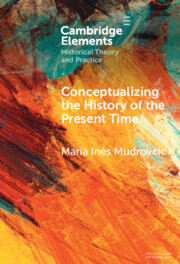Refine search
Actions for selected content:
1 results

Conceptualizing the History of the Present Time
-
- Published online:
- 03 May 2024
- Print publication:
- 30 May 2024
-
- Element
- Export citation
